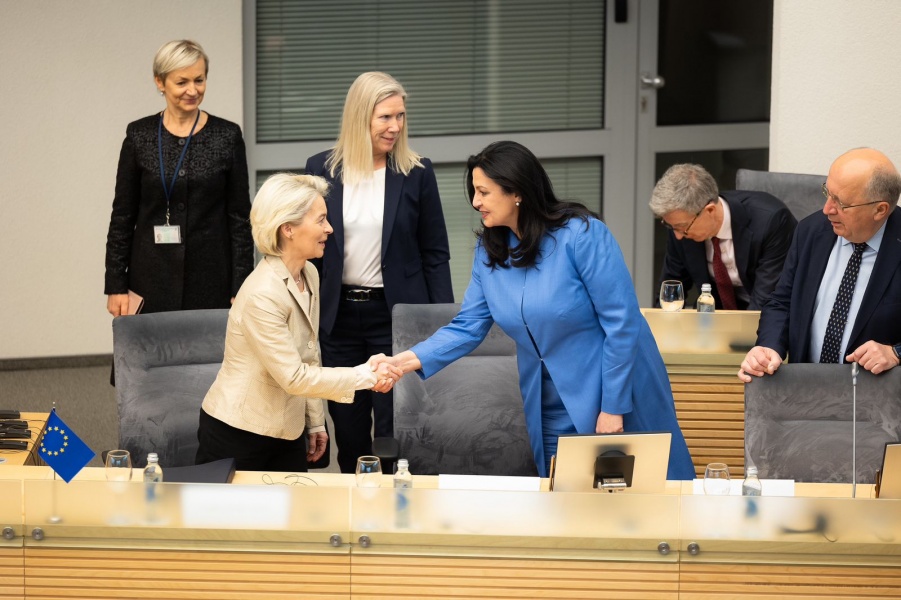Ivanna Klympush-Tsintsadze called for increased support in the Lithuanian Seimas
09 May 2024, 15:25

Ivanna Klympush-Tsintsadze noted that Ukraine and Lithuania have not only a common history but also, to some extent, a common destiny. “From the very beginning, we defended Europe from the Mongol invasion and the Moscow horde. We gained independence from the Russian Empire at the beginning of the 20th century. You managed it a little better, but then the USSR invaded Lithuania as well. After the Second World War, Ukrainian and Lithuanian partisans resisted the Soviet occupying forces for the longest time,” said the Chair of the Committee. She noted that Lithuania was not only able to restore its independence earlier than other post-Soviet states but also quickly recovered, transformed and returned to the family of European nations, where it has always belonged. Ivanna Klympush-Tsintsadze noted that Lithuania is a great inspiration for Ukraine. “Lithuania did everything possible and impossible in 2004 to join the EU. And your history in the EU is an example of how membership in the European Union opens great opportunities for modernisation, economic progress, democracy and observance of human rights and freedoms,” she said.
The Chair of the Committee is sure that the fact that over these 20 years, Lithuania preserved EU values and has not slipped into authoritarianism or attempts at authoritarianism, like some of its EU neighbours, should be a model for Ukraine. “Lithuania was and remains an example of democratic values. Values of freedom and human rights. Values where power is for a human, not a human for power. Lithuania is an example of how a small country can become an important political actor at the global level if it stands up for the values of freedom. Lithuania is now definitely one of the leaders of the free world that opposes autocracies,” said Ivanna Klympush-Tsintsadze.
She noted that the Russian invasion of Ukraine, which turned into a full-scale bloody brutal war, destroyed not only the lives of Ukrainians. It destroyed the security of the entire continent and undermined the international legal order. “I'm sure you understand that Moscow's imperial ambitions, proved by the scale of Russian crimes and destruction in Ukraine, are an existential threat not only to us but also to free peaceful Europe. This enemy will not stop unless stopped. However, even the infinitely brave and devoted Ukrainian people cannot do it alone,” said the Chair of the Committee. According to her, Russia, with the help of its authoritarian allies, has increased its military power to further advance on the front line in Ukraine and continue terror against the civilian population. “They understand that they cannot break the spirit of Ukrainians, so they destroy our lives by attacking civilians, targeting our energy infrastructure, turning our cities and villages into ruins,” said Ivanna Klympush-Tsintsadze. She thanked Lithuania and the Lithuanian people for all-round support — military, humanitarian, political and support for the European integration of Ukraine. The Chair of the Committee appealed to strengthen this support so that Ukraine could stay resilient and defend itself and European and world security could be restored. Only when Russia is defeated, isolated and weakened to such an extent that it will no longer be able to attack any other state in the world, it will be possible to talk about stable peace on the continent, said Ivanna Klympush-Tsintsadze.